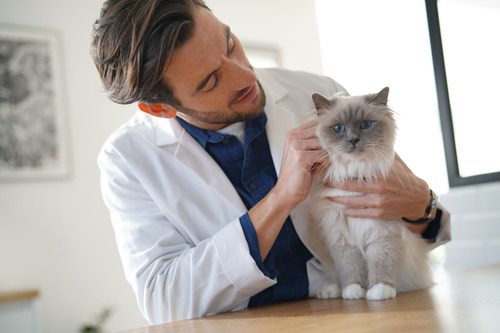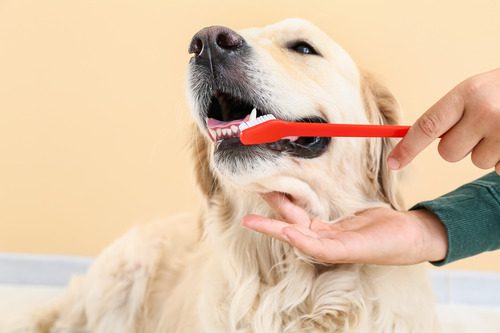What is Bordetella and Why Should You Care?
Bordetella is a term many pet owners hear when discussing vaccinations or kennel cough prevention, but what exactly is it? If your dog spends time around other dogs, they are at risk of contracting Bordetella. This highly contagious bacterium is a leading cause of respiratory infections in dogs, often spreading quickly in boarding facilities, dog parks, and grooming salons. Learning how Bordetella affects pets and why prevention matters can help you make informed decisions about your dog’s health.

Understanding Bordetella: What Every Pet Owner Needs to Know
Bordetella bronchiseptica is a bacterial infection that affects the respiratory system in dogs, causing inflammation and irritation in the airways. It is the primary bacterium responsible for kennel cough, a broad term for contagious canine respiratory infections. Similar to the common cold in humans, Bordetella spreads through airborne droplets, contaminated surfaces, and direct dog-to-dog contact.
While many healthy dogs recover without complications, some are at higher risk of severe illness. Puppies, senior dogs, and those with weakened immune systems may experience prolonged symptoms or secondary infections. Because Bordetella is so easily transmitted, prevention is an important step in protecting your dog from unnecessary illness.
How Do Dogs Get Bordetella?
Bordetella bacteria thrive in environments where dogs gather. Exposure can occur through shared water bowls, close play with infected dogs, or simply breathing in airborne bacteria. Dogs that frequently visit doggy daycare, boarding facilities, pet stores, or training classes have a higher risk of contracting Bordetella. Even a routine trip to the groomer can pose a risk if an infected dog was recently in the same space. Dogs with Bordetella typically develop symptoms within a few days of exposure. The infection spreads quickly, making early detection and proper management essential.
What Are Signs of Bordetella Infection in Your Dog?
Dogs infected with Bordetella often develop a persistent cough, which is the most noticeable symptom. This cough is usually dry and hacking, sometimes described as a “goose honk.” Other symptoms may include:
- Sneezing and nasal discharge
- Mild fever
- Lethargy or reduced energy levels
- Loss of appetite
- Watery eyes
While symptoms may be mild in many dogs, some cases can progress to pneumonia, particularly in puppies or dogs with existing health concerns. If your dog develops a persistent cough or other signs of illness, a veterinary exam can determine whether Bordetella or another respiratory condition is to blame.
The Bordetella Vaccine: Protection for Your Pet
Vaccination is one of the most effective ways to reduce your dog’s risk of contracting Bordetella. Many boarding facilities, groomers, and daycare centers require proof of a Bordetella vaccination before allowing dogs to enter. Even if your dog does not frequently interact with others, vaccination can provide an extra layer of protection, especially during flu season when respiratory infections are more common.
Types of Bordetella Vaccines
There are three main types of Bordetella vaccines available for dogs:
- Intranasal Vaccine: Administered as drops in the nose, this version provides localized immunity where the bacteria typically enter the body.
- Oral Vaccine: Given by mouth, this vaccine stimulates an immune response without requiring an injection.
- Injectable Vaccine: Delivered as a traditional shot, this version is often combined with other routine vaccinations.
Your veterinarian can recommend the best option based on your dog’s lifestyle and risk factors. The Bordetella vaccine is generally safe and well-tolerated, with only mild side effects such as temporary sneezing or slight lethargy.
How to Prevent the Spread of Bordetella
While the Bordetella vaccine is an important preventive measure, additional steps can help minimize your dog’s risk of infection. Good hygiene and careful exposure management can make a significant difference in preventing respiratory illnesses.
- Regular booster vaccines help maintain immunity, especially if your dog frequently socializes with other dogs.
- Look for facilities that require all dogs to be vaccinated and maintain clean, well-ventilated spaces.
- If you hear of kennel cough cases in your area, avoid high-risk locations such as dog parks and daycare centers.
- Wash food and water bowls frequently, especially if your dog interacts with other pets.
- Monitor your dog for symptoms, as early detection and veterinary care can help prevent Bordetella from progressing into more serious conditions.
When Should You See Your Veterinarian?
If your dog develops a persistent cough, nasal discharge, or seems unwell, scheduling a veterinary visit to Providence Veterinary Hospital and Clinic is a good idea. While many cases of Bordetella resolve on their own, some dogs may need supportive care to recover fully. Your veterinarian can assess your pet’s condition and recommend the best course of action. Severe symptoms, such as difficulty breathing, extreme lethargy, or refusal to eat, require immediate attention. Puppies, older dogs, and those with underlying health issues may need additional care to prevent complications.
Protecting Your Dog’s Health with Expert Veterinary Care
Bordetella is a common but preventable illness, and understanding how it spreads can help you make informed decisions about your pet’s health. Whether your dog is a social butterfly or prefers the comfort of home, vaccination and good hygiene practices are key to reducing the risk of infection. If you have questions about Bordetella or want to schedule a vaccination appointment, contact Providence Veterinary Hospital and Clinic in Alameda, California. Our team can provide personalized care and expert guidance for your pet’s well-being. Call us at (510) 521-6608 or (510) 521-5775 to book an appointment today.
Recent Posts
What Does Your Dog’s Tail Wag Really Mean?
What Does Your Dog’s Tail Wag Really Mean? Dogs use their tails for much more than just…
Feline Leukemia: Prevention and Detection
Feline Leukemia: Prevention and Detection Cat Feline Leukemia is a serious viral disease that affects felines worldwide….
A Team Effort: How Home Care and Professional Cleanings Keep Your Dog’s Teeth Healthy
A Team Effort: How Home Care and Professional Cleanings Keep Your Dog’s Teeth Healthy Dental health is…
The Perfect Pair: Home Care and Professional Cleanings for Your Cat’s Teeth
The Perfect Pair: Home Care and Professional Cleanings for Your Cat’s Teeth Caring for your cat’s teeth…
Why Are Dogs Scared of Loud Noises?
Why Are Dogs Scared of Loud Noises? Loud noises can be a significant source of stress and…
Providence Veterinary Hospital & Clinic serve Alameda, CA as well as Oakland, San Leandro, and the surrounding areas with superb veterinary medicine and gentle, compassionate care. We’ve been a part of this community since 1947 when a veterinarian started seeing pets in his home after the end of World War II. He built an animal hospital right under his house, and that’s where we remain to this day (with modern remodeling in 2016, to outfit the hospital with the latest medical technology and equipment, of course!).





